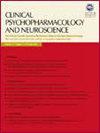戊酮可可碱对缺氧缺血性脑损伤大鼠学习记忆障碍的差异影响
IF 2.4
4区 医学
Q3 NEUROSCIENCES
引用次数: 6
摘要
目的围产期缺氧缺血性脑损伤常导致认知和感觉运动领域的长期神经行为功能障碍。本研究采用出生后第7天大鼠的新生儿HI损伤模型(单侧颈动脉结扎后缺氧),研究了HI的长期影响和己酮可可碱的潜在行为保护作用。方法对7日龄大鼠进行右颈动脉结扎,然后缺氧(FiO2=0.08)。大鼠在缺氧后立即接受己酮可可碱治疗,并在缺氧后2小时再次接受戊酮可可碱(两剂,60–100 mg/kg/剂)或血清生理学治疗。另一组7天大的大鼠被纳入暴露于手术压力但未结扎的假手术组。从出生后第77天至第85天,在Morris水迷宫中对这些大鼠进行了简单位置任务的空间学习和记忆测试。结果HI大鼠右侧海马组织明显缺失,同时存在严重的空间记忆缺陷。己酮可可碱的低剂量治疗对HI诱导的海马组织损失和空间记忆损伤具有显著的保护作用。然而,如果以高剂量施用己酮可可碱,则会否定有益效果。结论这些发现表明,新生啮齿动物模型中的单侧HI脑损伤与认知缺陷有关,低剂量己酮可可碱治疗对空间记忆障碍具有保护作用。本文章由计算机程序翻译,如有差异,请以英文原文为准。
Differential Effects of Pentoxifylline on Learning and Memory Impairment Induced by Hypoxic-ischemic Brain Injury in Rats
Objective Hypoxic-ischemic (HI) brain injury in the human perinatal period often leads to significant long-term neurobehavioral dysfunction in the cognitive and sensory-motor domains. Using a neonatal HI injury model (unilateral carotid ligation followed by hypoxia) in postnatal day seven rats, the present study investigated the long-term effects of HI and potential behavioral protective effect of pentoxifylline. Methods Seven-day-old rats underwent right carotid ligation, followed by hypoxia (FiO2 = 0.08). Rats received pentoxifylline immediately after and again 2 hours after hypoxia (two doses, 60–100 mg/kg/dose), or serum physiologic. Another set of seven-day-old rats was included to sham group exposed to surgical stress but not ligated. These rats were tested for spatial learning and memory on the simple place task in the Morris water maze from postnatal days 77 to 85. Results HI rats displayed significant tissue loss in the right hippocampus, as well as severe spatial memory deficits. Low-dose treatment with pentoxifylline resulted in significant protection against both HI-induced hippocampus tissue losses and spatial memory impairments. Beneficial effects are, however, negated if pentoxifylline is administered at high dose. Conclusion These findings indicate that unilateral HI brain injury in a neonatal rodent model is associated with cognitive deficits, and that low dose pentoxifylline treatment is protective against spatial memory impairment.
求助全文
通过发布文献求助,成功后即可免费获取论文全文。
去求助
来源期刊

Clinical Psychopharmacology and Neuroscience
NEUROSCIENCESPHARMACOLOGY & PHARMACY-PHARMACOLOGY & PHARMACY
CiteScore
4.70
自引率
12.50%
发文量
81
期刊介绍:
Clinical Psychopharmacology and Neuroscience (Clin Psychopharmacol Neurosci) launched in 2003, is the official journal of The Korean College of Neuropsychopharmacology (KCNP), and the associate journal for Asian College of Neuropsychopharmacology (AsCNP). This journal aims to publish evidence-based, scientifically written articles related to clinical and preclinical studies in the field of psychopharmacology and neuroscience. This journal intends to foster and encourage communications between psychiatrist, neuroscientist and all related experts in Asia as well as worldwide. It is published four times a year at the last day of February, May, August, and November.
 求助内容:
求助内容: 应助结果提醒方式:
应助结果提醒方式:


